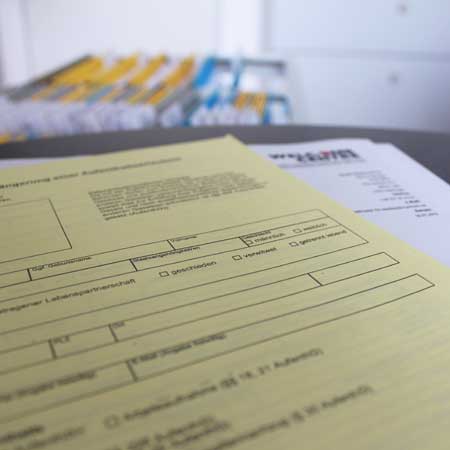In Germany, some insurances are mandatory, others are optional.
There is a highly developed social security system that provides people with financial security, for instance, in case of illness or unemployment. All employed individuals are required to participate in the social insurance system (health, pension, unemployment, accident and long-term care insurance). There are exceptions for freelancers, the self-employed, civil servants and people who are employed only part-time.
Employers and those who are employed finance the social insurance system jointly with equal contributions. Only the accident insurance contributions are paid in full by the employers.
Health insurance
All people living in Germany are required to have health insurance. This also applies, of course, to international researchers and their accompanying family members. When applying for your visa, you must provide proof of health insurance that covers at least your travel to Germany, as well as the first few weeks. To apply for your residence permit after your arrival, you must then provide proof of health insurance that is valid for the entire period of your stay. Depending on the type of stay, you have various options for insuring yourself.
The Welcome Centre can provide assistance in choosing a public or private health insurance company and can also recommend multilingual doctors in the area.
Pension fund
The pension system provides financial security in old age. It is there to provide you or your survivors a pension as soon as you are no longer able to work (e.g. due to old age, accident or death). It not only pays a pension in retirement but also provides measures to maintain your working capacity (e.g. treatment).
Participation in the German pension system is compulsory for all employed people and some freelancers and self-employed people. Other freelancers and self-employed people can participate in an optional pension plan. It is also possible to participate in a private pension plan.
A fixed percentage of your salary is automatically deducted from your gross salary for your pension. You are automatically enrolled in the statutory pension system when you become employed.
More information on pensions:










